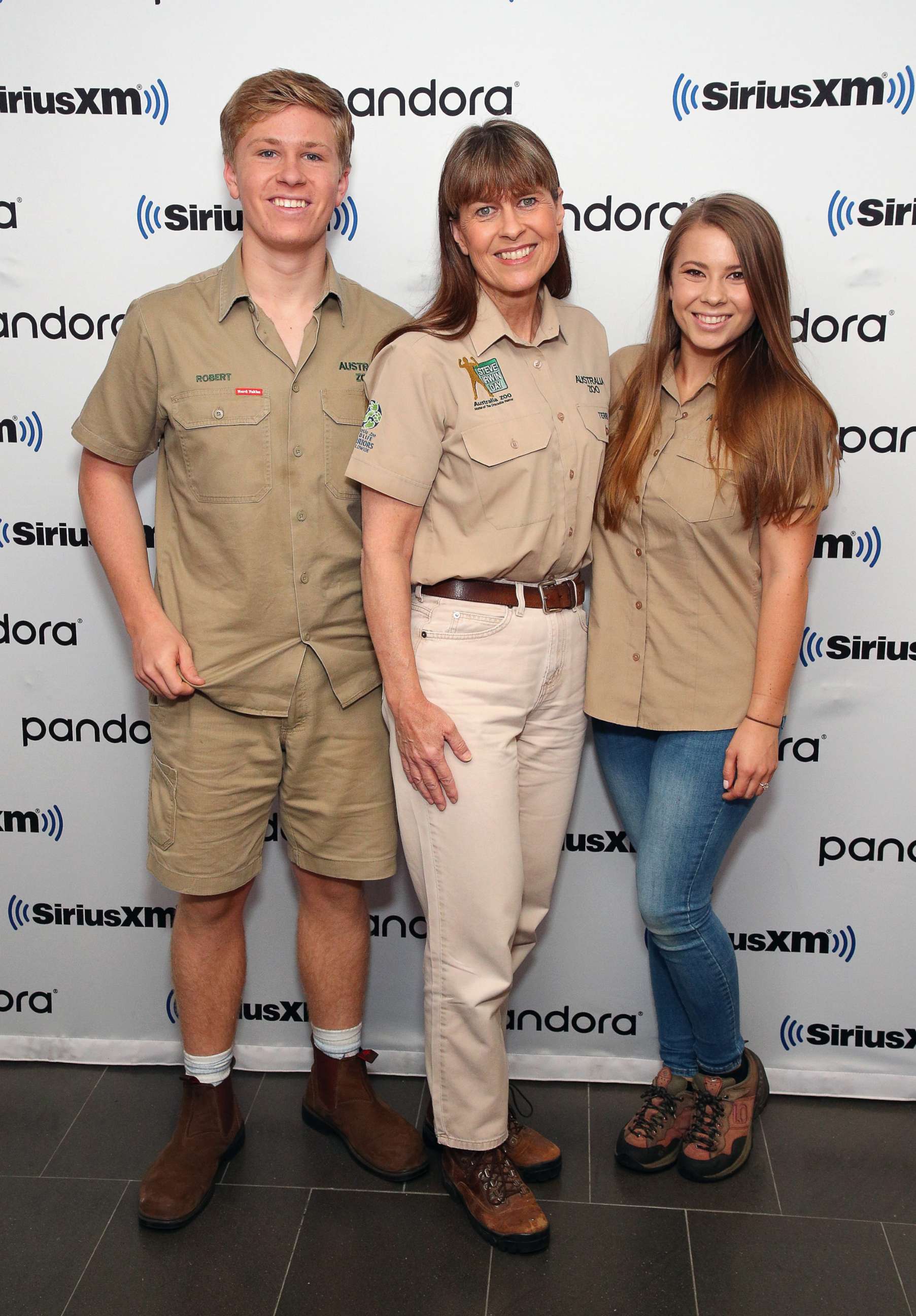Steve Irwin’s family has saved over 90K animals, including Australia wildfire victims
The family owns and operates the Australia Zoo’s Wildlife Hospital.
The family of the late Steve Irwin has helped rescue 90,000 animals including those falling victim to the ongoing wildfire devastation in Australia.
Terri Irwin, the widow of Steve Irwin, and their children, daughter Bindi and son Robert Irwin, own and operate the Australia Zoo’s Wildlife Hospital. Steve Irwin died in 2006 after being injured by a stingray.
"Wildlife Hospital takes in animals from all over Australia. Hundreds of grey-headed flying foxes, a species listed as vulnerable, have been flown to Queensland after the rescue centre they were recovering in was at risk from fire and evacuated," Bindi Irwin posted on Instagram, along with images of orphaned fox cubs recovering from the fire.
"This week, we treated our 90,000th patient," she wrote in the post.
The 90,000th patient is a platypus rescued from the inferno, who the family named "Ollie."
"'Ollie' the orphaned platypus is receiving round the clock care until he can be released back to the wild," Robert Irwin posted on Instagram, adding, "With pressures from drought to bushfires, wildlife need our help now more than ever."
The raging fires, which have burned over 12.35 million acres of land -- about twice the size of Vermont -- is believed to have killed nearly 500 million animals since the start of Australia's bush fire season in September, according to estimates from ecologists at the University of Sydney. That figure only includes mammals and does not include insects, bats or frogs, according to a statement on the university's website. "The true loss of animal life is likely to be much higher than 480 million," the statement reads.
Up to 30% of the koala population in New South Wales' mid-north coast may have been killed, Australia's minister for the environment, Sussan Ley, told the Australian Broadcasting Corporation. The region is known for its koala population.

Firefighters have been brought in from the United States to assist Australian authorities.
Steve Price normally fights fires in the U.S. but for the past month he’s been in Australia. "It’s the biggest fire I’ve ever been on in my life, and I’ve been doing it thirty years now." he told ABC News.
Price, who hails from Idaho, is part of the air operations rescue in Australia. He is one of dozens of U.S. firefighters who have volunteered to come to Australia.
He said the fires in Australia are similar to those that have raged in Southern California -- wildfires in both areas move fast along the coast and in hot conditions. But the big difference in Australia is the size. He said it takes him 40 minutes to fly across just one of the scores of fires in a helicopter.
Milder temperatures on Sunday brought hope of a respite from the fires that have so far claimed at least 24 lives and destroyed almost 2,000 homes. Temperatures have dropped about 30 degrees Fahrenheit -- from 104 to 73 degrees in some areas. There is also a misty rain falling.
Conditions, however, are still dangerous, according to Australia Prime Minister Scott Morrison.
"The nature of those fires is still very strong," he said at a press conference in Australia Sunday morning, after a day of high tension on Saturday when soaring temperatures and strong winds fanned, forcing thousands to flee.
For the first time in Australia's history, 3,000 army, navy and air force reservists have been called up and will be thrown into the battle against the fires, Morrison said.
There are still over 139 fires burning, with 69 uncontained, according to the most recent Twitter status post from the New South Wales Rural Fire Service.
Terri Irwin posted on Twitter that the Australia Zoo and the animal hospital are safe from the fire.
ABC News’ Anthony Trotter, Matt Foster and James Gillings contributed to this report.




